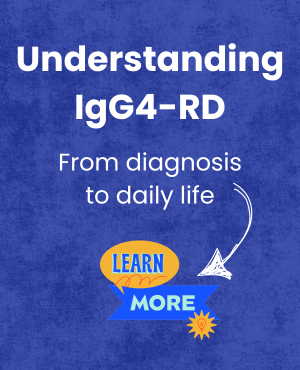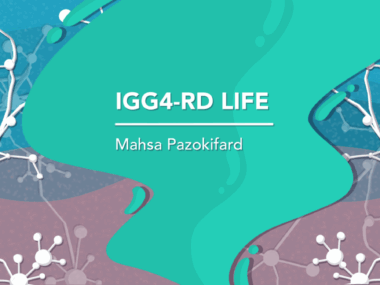Higher cancer risk possible with IgG4-RD diagnosis, report suggests
Researchers call for careful monitoring for patients, especially those older
Written by |

People with immunoglobulin G4-related disease (IgG4-RD) may be susceptible to developing multiple cancers and should be carefully monitored, according to a new report from researchers in Turkey.
In reviewing previously published reports, the scientists found that people who experienced multiple cancers, or malignancies, tended to be older than those who had one or no cancers — and also discovered that many patients often had IgG4-RD manifestations in the pancreas and bile ducts. The bile ducts are the tubes that transport the digestive fluid bile from the liver and gall bladder to the small intestine.
However, the team stressed that more research is needed to fully understand these relationships.
“Our study is the first comprehensive evaluation of the clinical characteristics of patients with IgG4-RD with multiple malignancies,” the researchers wrote.
To better understand this link, “prospective and comparative studies with larger patient populations should be conducted in the future,” the team noted.
The study, “Is IgG4-Related Disease a Potential Risk Factor for Multiple Malignancies?,” was published as a letter to the editor in the International Journal of Rheumatic Diseases by the team, from the Gazi University Faculty of Medicine.
Report describes 2 IgG4 patients with multiple cancers
In IgG4-RD, immune cells infiltrate tissues to cause inflammation, scarring, and the formation of tumor-like masses or swellings. The condition can cause a range of possible symptoms, depending on which tissues and organs are affected.
However, while the rare immune-mediated disorder can cause damage to nearly all tissues, it most often manifests in clinical profiles affecting the pancreas, head and neck, or back region of the abdominal cavity.
Studies have found that people with IgG4-RD are at an increased risk of cancer, particularly lymphoma, a type of blood cancer, and pancreatic cancer. Often, cancer is seen in the first year after an IgG4-RD diagnosis, and manifests as a single cancer type.
In this report, the scientists discussed two IgG4-RD patients seen at their clinic in Ankara who experienced multiple cancers before or after their IgG4-RD diagnosis.
The first, a 63-year-old man, had a common IgG4-RD clinical profile of retroperitoneal fibrosis and aortitis, where the disease affects certain structures in the back of the abdomen. Over a six-month follow-up period, the patient was found to have bladder, thyroid, and kidney cancer.
The second case involved a woman who had been diagnosed with breast cancer at age 61, followed by colon cancer at 65. She was in remission after treatment, but later developed IgG4-RD affecting the breast tissue and eyes at age 72.
These two unusual cases prompted the researchers to search for other published reports of multiple cancers in a person with IgG4-RD.
The team found four studies reporting on 11 people who were found to have multiple cancers before, at the same time, or after their IgG4-RD diagnosis.
Team says cancer risk for patients needs to be investigated
Across the 13 total patients — including the two seen at the scientists’ clinic — about three-quarters (76.9%) were men. The mean age at IgG4-RD diagnosis was 66, ranging from 58 to 83 years. More than two-thirds of these individuals (69%) initially showed signs of pancreato-hepatobiliary disease, an IgG4-RD clinical profile affecting mainly the pancreas and bile ducts.
Nine people had two cancers, and four people had three, with a total of 30 malignancies observed across the group. The most commonly reported tumors were prostate cancer, lymphoma, and melanoma, a type of skin cancer.
For slightly more than half of the patients (53.8%), the cancers occurred before an IgG4-RD diagnosis. Three developed malignancies around the time of their diagnosis or after it, while three others developed cancers both before and after their IgG4-RD diagnosis.
For comparison, the scientists looked at data from 17 IgG4-RD patients from another study who had developed a single cancer, as well as 25 patients without cancer who were seen at their clinic.
In those without cancer, the median age was 46.92 and 64% of patients were male. The most frequent IgG4-RD clinical profile was retroperitoneal fibrosis and aortitis. Among those with a single malignancy, the median age was 56.7, with nearly two-thirds of patients (64.7%) being men. Pancreato-hepatobiliary disease was the most common profile.
The most frequently observed solid tumors in the single cancer group occurred in the gastrointestinal tract, followed by the thyroid, urinary system, and breast. A total of 13 of the 17 developed cancer around the time of or after their IgG4-RD diagnosis, while four had a prior history of cancer.
Multiple cancers may occur with older age, per researchers
These findings suggest that IgG4-RD patients with involvement of the pancreas and bile ducts may be at a higher risk of cancer, and that multiple cancers may occur with older age, according to the researchers.
Our objective is to emphasize the importance of cancer screening at the time of diagnosis and follow-up of patients with IgG4-RD, especially elderly patients, and to highlight that multiple malignancies may occur in these patients.
Ultimately, the team noted, this study demonstrates that IgG4-RD patients may be vulnerable to multiple cancers, emphasizing a need for careful monitoring.
“Our objective is to emphasize the importance of cancer screening at the time of diagnosis and follow-up of patients with IgG4-RD, especially elderly patients, and to highlight that multiple malignancies may occur in these patients,” the researchers wrote.
The exact nature of the relationship still isn’t known, but it’s possible that persistent inflammation and immune dysfunction hamper the immune system’s usual ability to monitor for and eliminate cancerous cells, according to the scientists.
The team believes that the number of IgG4-RD patients with multiple cancers may be underestimated. There’s therefore a need for larger studies that will confirm the association and identify clinical profiles associated with malignancies in IgG4-RD, per the researchers.






